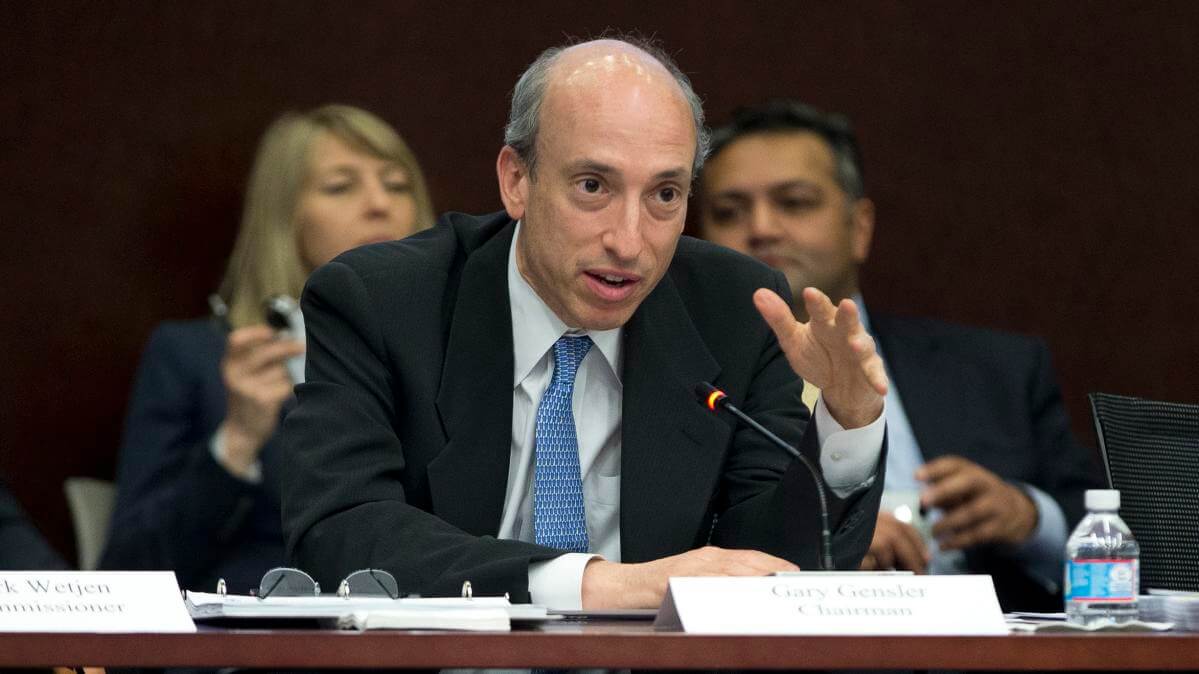Industry Leaders Demand SEC Chairman Gary Gensler’s Resignation
11.11.2024 19:00 2 min. read Kosta Gushterov
On November 8, the ongoing battle between Ripple and the SEC took a dramatic turn.
Chris Lacovella, CEO of the American Securities Association (ASA), publicly called for the resignation of SEC Chairman Gary Gensler. Lacovella, whose organization represents over 100 financial firms, voiced his demands as frustration with the SEC’s handling of crypto regulation reached a boiling point. Lacovella remarked,
“The people voted for this country to take a new direction, and Chairman Gensler should respect that vote by stepping down immediately.”
The call for Gensler’s removal quickly gained traction, with widespread support from the crypto community. A notable post on social media echoed the sentiment, stating, “Gensler must go immediately! After trying to regulate cryptocurrency, he proved that he doesn’t understand how the market works and is only undermining trust.”
The Ripple case has galvanized many to take a stand, with companies growing increasingly disillusioned with the SEC’s actions since 2021. In response to the commission’s aggressive litigation strategy and lack of clear guidelines, several businesses have either reduced their presence in the U.S. or halted new projects altogether. Now, even small banks and major traders are joining the chorus of discontent, with Wall Street also closely monitoring the situation.
While some crypto firms hope that these changes could lead to a better regulatory environment for digital assets in the U.S., only time will tell how this will unfold.
-
1
Tariffs Not a Threat to S&P Momentum, Says Fundstrat’s Tom Lee
06.06.2025 17:00 1 min. read -
2
Wall Street Rally Gains Momentum as Doubters Wait for a Fall – Tom Lee
26.05.2025 12:00 1 min. read -
3
Bitget Launches Yield-Bearing Stable Asset Backed by Tokenized Treasuries
27.05.2025 19:00 1 min. read -
4
Circle Dismisses Acquisition Rumors, Reaffirms IPO Focus
27.05.2025 12:00 2 min. read -
5
FTX Begins Second Round of Creditor Payouts Amid Ongoing Disputes
31.05.2025 16:00 1 min. read
MEXC Sets Up $100M Emergency Fund to Protect Users From Major Security Incidents
Crypto exchange MEXC has launched a $100 million protection reserve to safeguard users in case of platform-level breaches or critical failures, positioning itself as one of the few players in the space offering real-time compensation for technical breakdowns or hacks.
Peter Thiel-Backed Bullish Quietly Files for IPO as Crypto Firms Eye Wall Street
Digital asset exchange Bullish, supported by billionaire investor Peter Thiel, is making a stealthy move toward going public.
Polygon Breaks from Decentralization as Sandeep Nailwal Assumes Full Control
Polygon is entering a new chapter, with co-founder Sandeep Nailwal assuming the role of CEO at the foundation that oversees its ecosystem.
UK Regulators Unveil PISCES – A New Era for Private Share Trading
The UK’s financial regulators are shaking up capital markets, introducing a new private trading platform called PISCES and proposing to cut burdensome reporting requirements for fund managers.
-
1
Tariffs Not a Threat to S&P Momentum, Says Fundstrat’s Tom Lee
06.06.2025 17:00 1 min. read -
2
Wall Street Rally Gains Momentum as Doubters Wait for a Fall – Tom Lee
26.05.2025 12:00 1 min. read -
3
Bitget Launches Yield-Bearing Stable Asset Backed by Tokenized Treasuries
27.05.2025 19:00 1 min. read -
4
Circle Dismisses Acquisition Rumors, Reaffirms IPO Focus
27.05.2025 12:00 2 min. read -
5
FTX Begins Second Round of Creditor Payouts Amid Ongoing Disputes
31.05.2025 16:00 1 min. read


